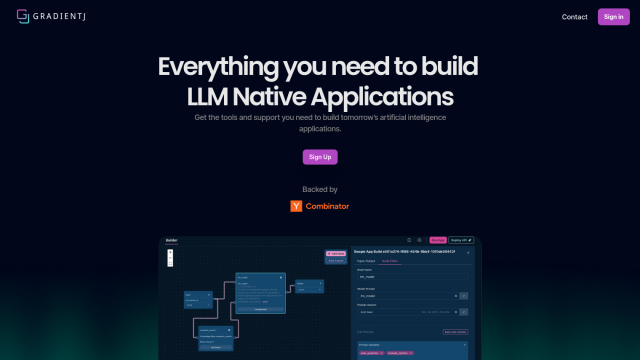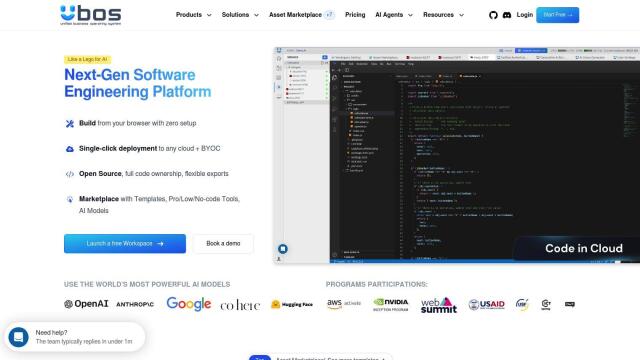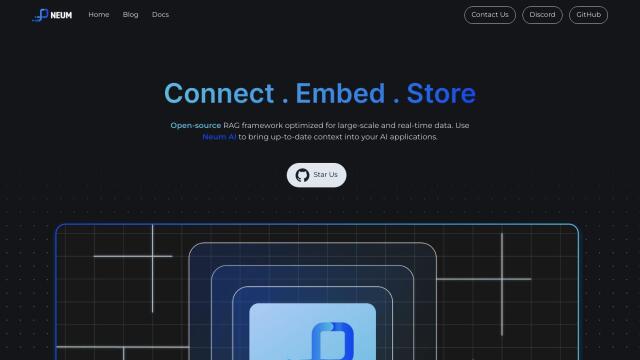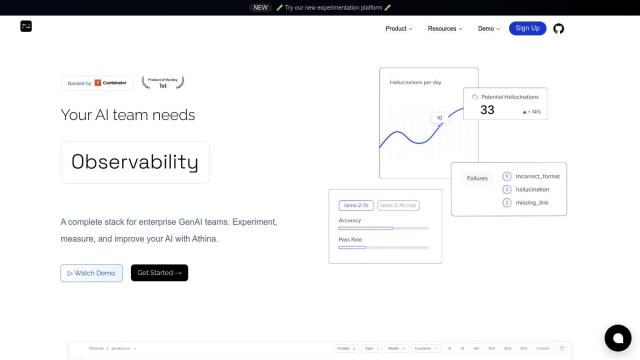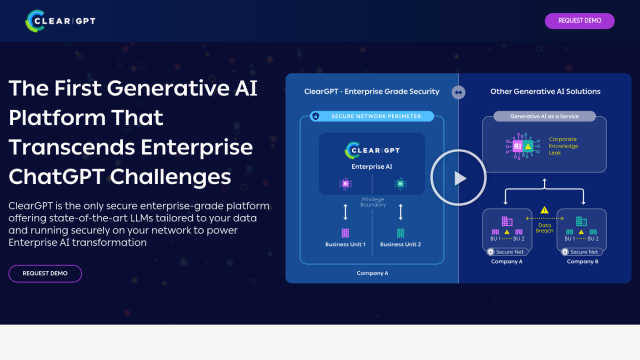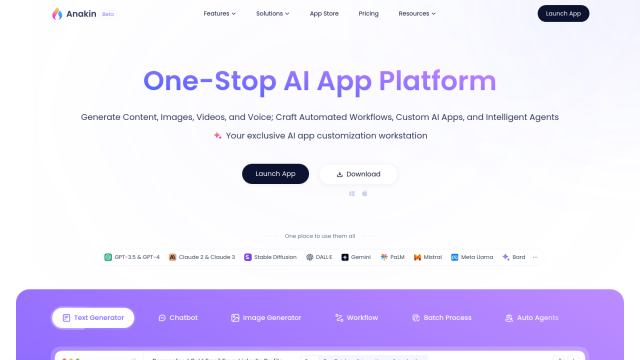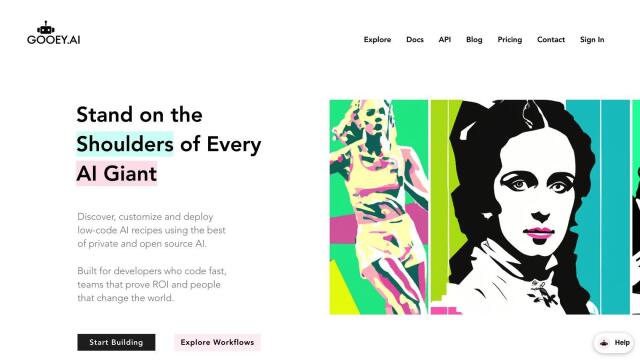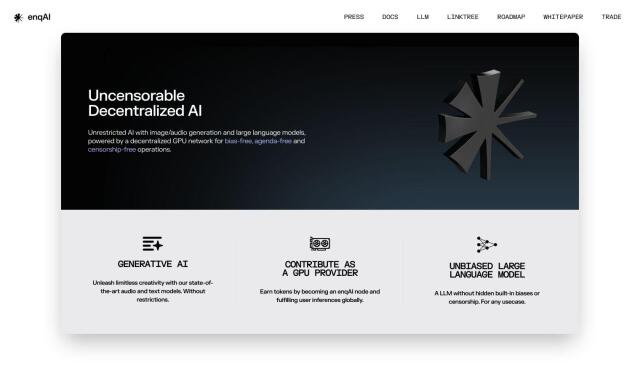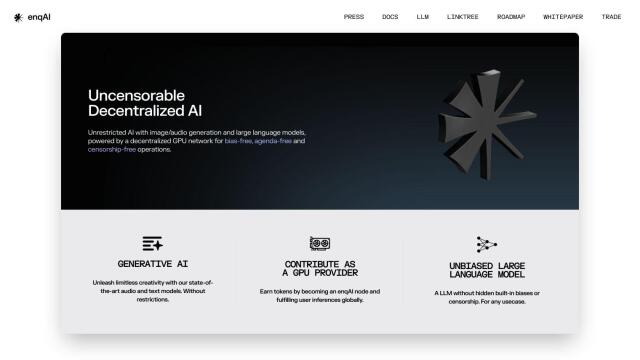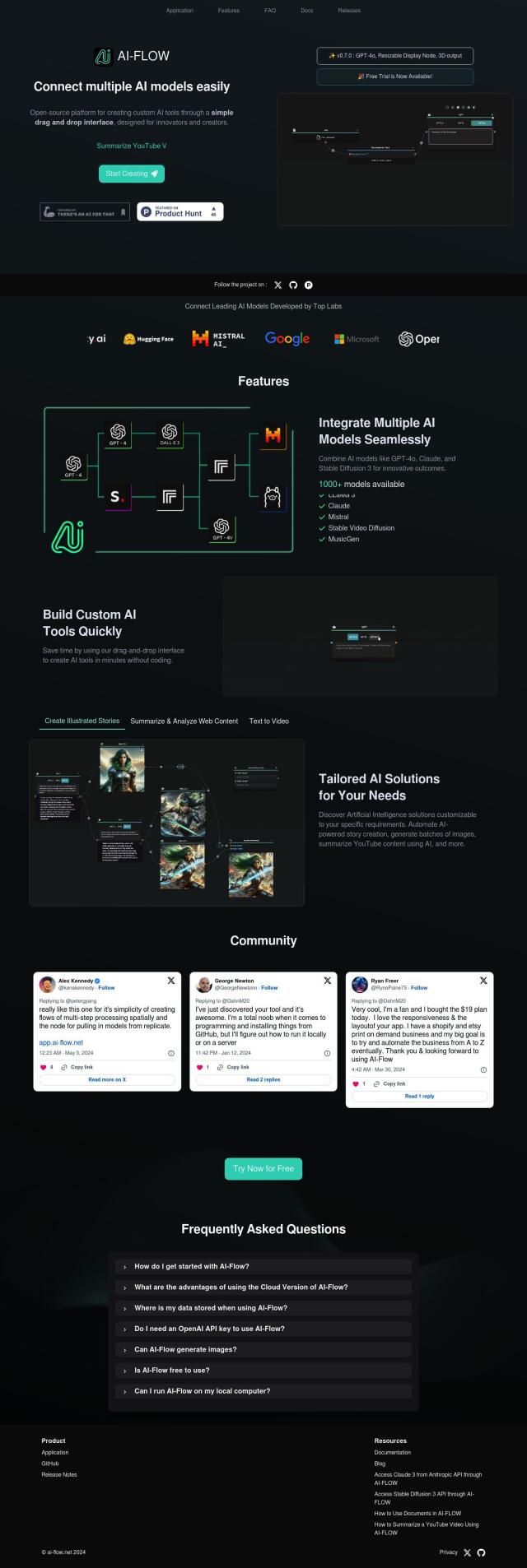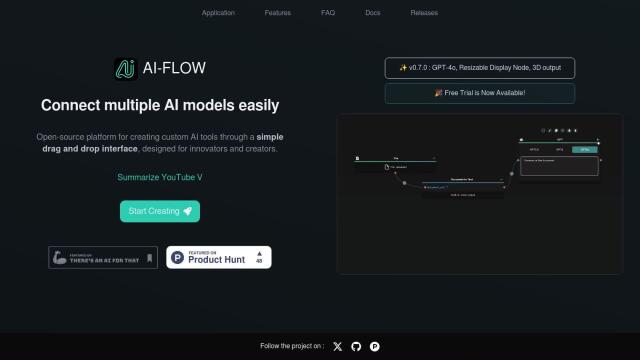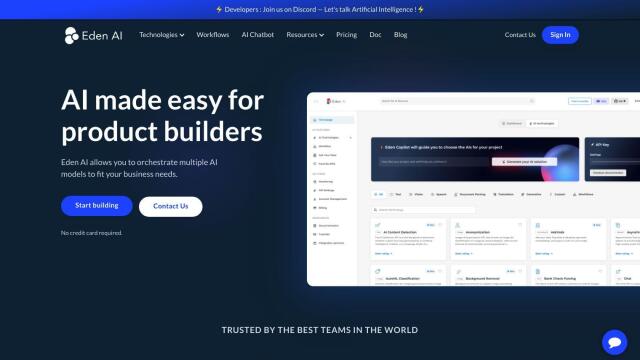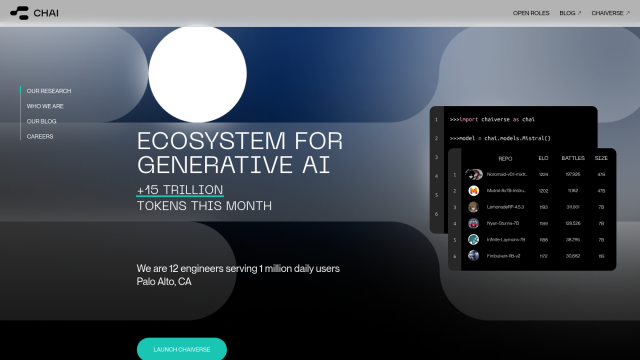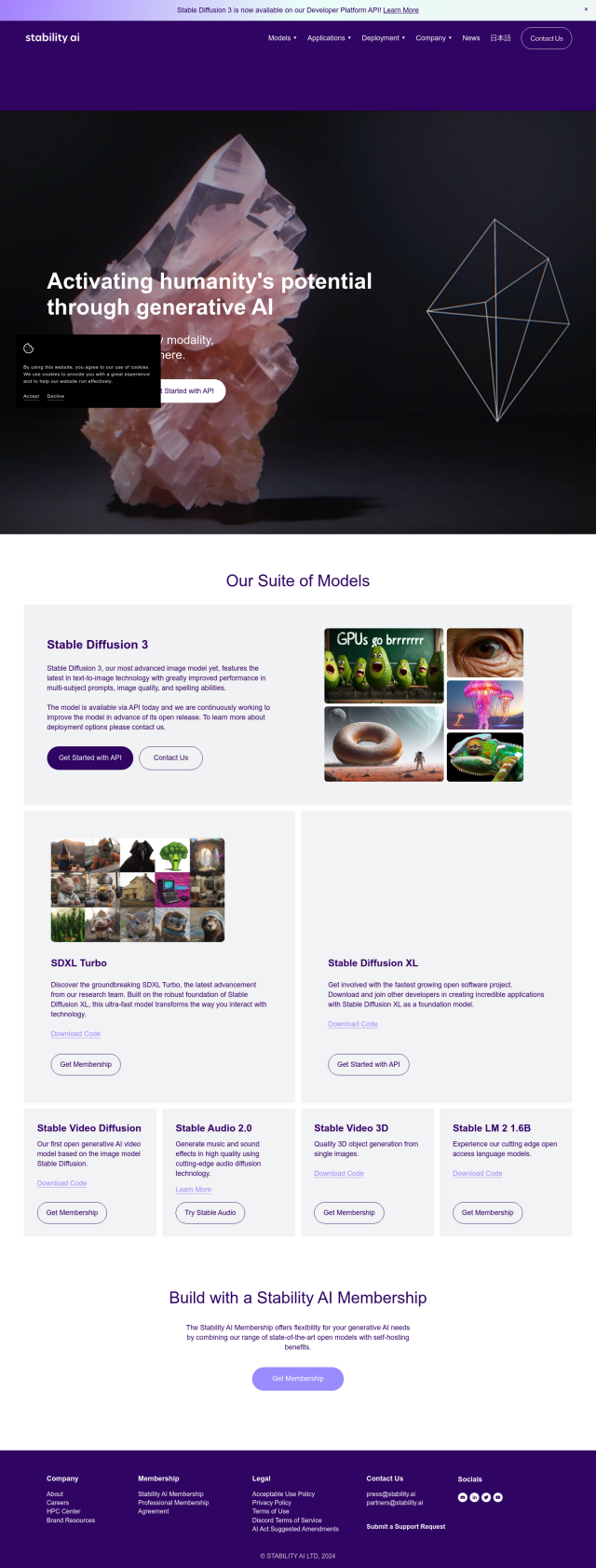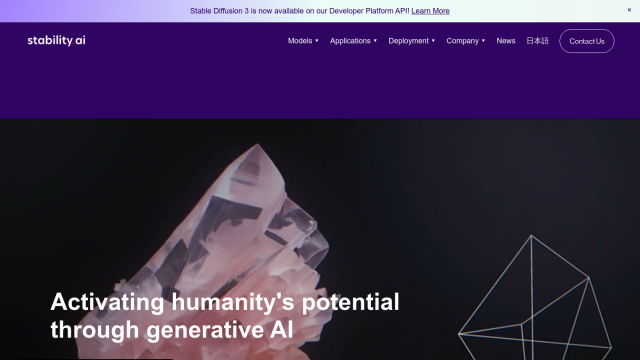Question: Can you recommend an open-source solution for building and managing generative AI apps with a fast inference engine?


Dify
If you're looking for an open-source foundation to build and run generative AI apps with a high-performance inference engine, Dify is worth a serious look. Dify is a full-stack platform for generative AI apps, including a visual Orchestration Studio for designing AI apps and tools for secure data pipelines. It can use customizable LLM agents, deploy chatbots and AI assistants quickly, and generate creative documents. The platform's on-premise options let you keep data private and compliant, and it's flexible enough for companies and individuals.

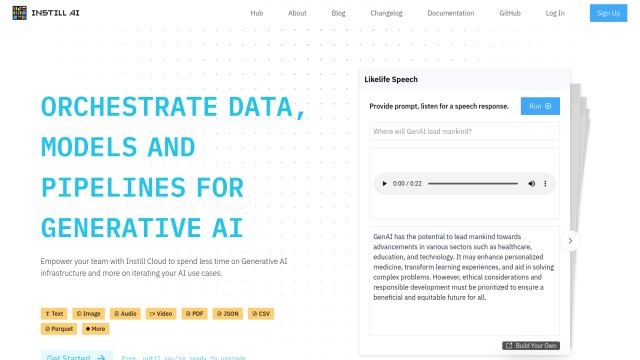
Instill
Another good option is Instill, a no-code/low-code AI platform that makes it easier to build generative AI apps. It comes with features like speech responses, webpage summarization and SEO article generation, and a drag-and-drop interface for custom pipelines. Instill exposes dynamic inference API endpoints and provides SDKs for Python and TypeScript so you can easily integrate and deploy AI models. Its modular, scalable architecture makes it good for a wide range of use cases without requiring you to set up heavy infrastructure.


LastMile AI
If you want a full-stack developer platform, LastMile AI is worth a look. The platform is geared to help engineers productionize generative AI apps with features like Auto-Eval for automated hallucination detection and the RAG Debugger for optimizing prompts and models. It supports multiple AI modalities and has a notebook-inspired environment for prototyping and app development, making it easier to deploy production-ready generative AI apps.


Groq
Last, Groq has a high-performance inference engine with its LPU Inference Engine. It's tuned for low power consumption and can run in the cloud or on-premises, so it's good for customers who need high-performance AI inference at scale. Groq also works to optimize AI processing workflows, especially for generative AI models, to ensure high-quality and efficient AI compute.

